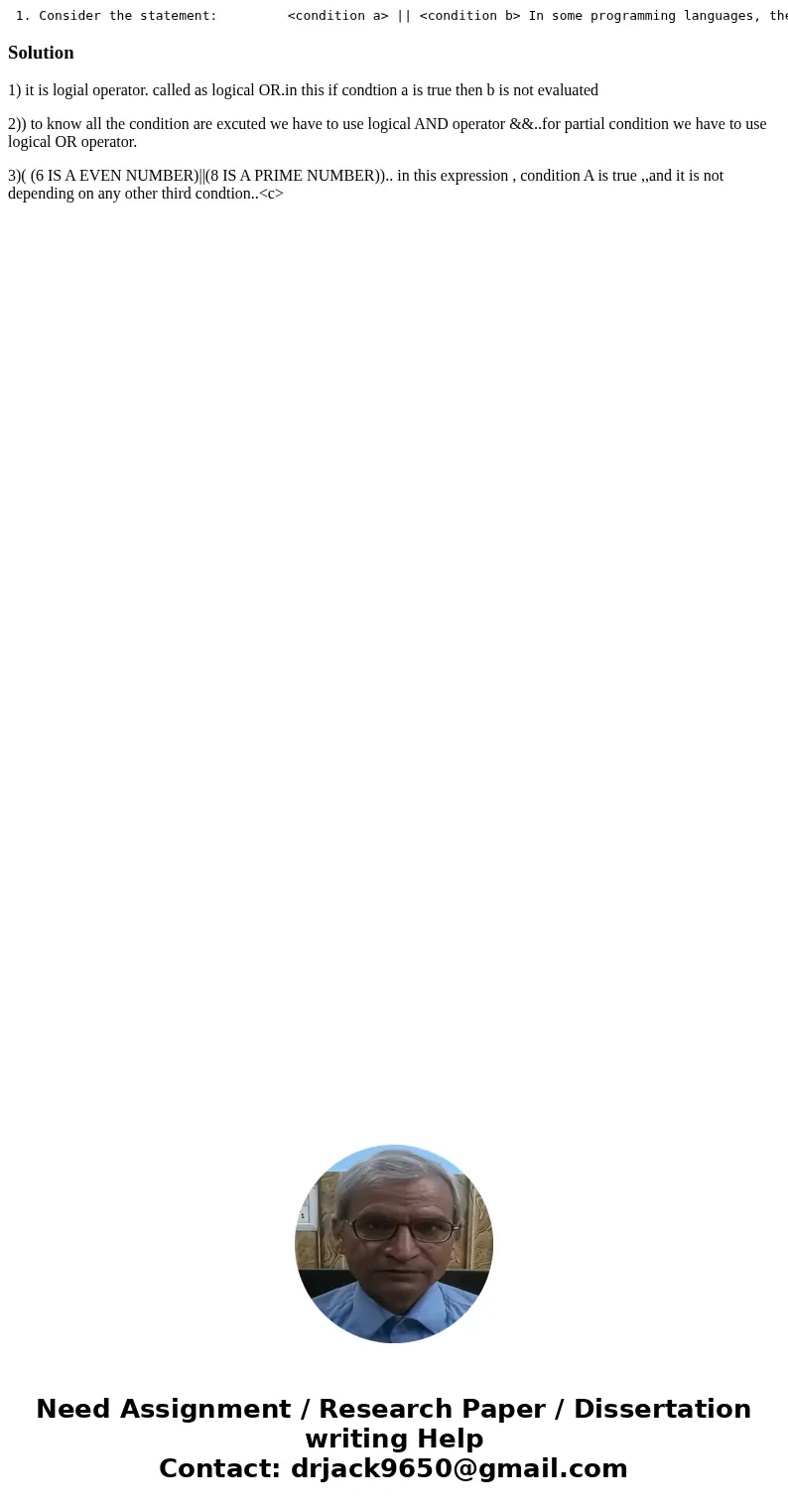1 Consider the statement In some programming languages the
1. Consider the statement: <condition a> || <condition b> In some programming languages, the semantics of the || operator are such that if <condition a> is TRUE, then <condition b> will not be evaluated. What is the technical term for this? 2. Based on question-1, without looking at any technical manuals or online resources, how can you test by executing the programs to know if all the conditions are evaluated or the conditions are partially evaluated? Provide one to five lines of pseudocode for this testing and explain how the testing program works. 3. Based on question-1, give one real life example (including one activity, namely <condition a>, and the other, namely <condition b>) to show that the final judgment of its truth value is not affected by <condition b> if <condition a> is TRUE (i.e. <condition b> does not need to be evaluated).
Solution
1) it is logial operator. called as logical OR.in this if condtion a is true then b is not evaluated
2)) to know all the condition are excuted we have to use logical AND operator &&..for partial condition we have to use logical OR operator.
3)( (6 IS A EVEN NUMBER)||(8 IS A PRIME NUMBER)).. in this expression , condition A is true ,,and it is not depending on any other third condtion..<c>

 Homework Sourse
Homework Sourse